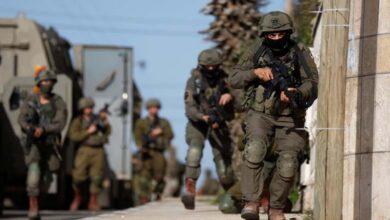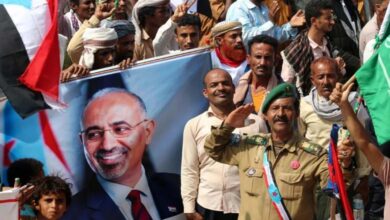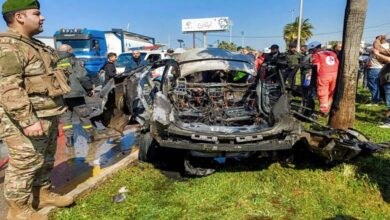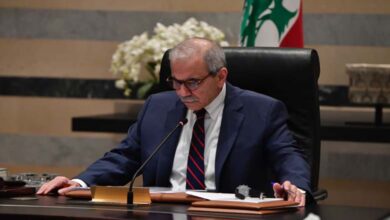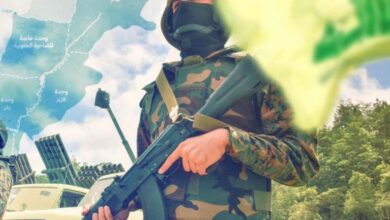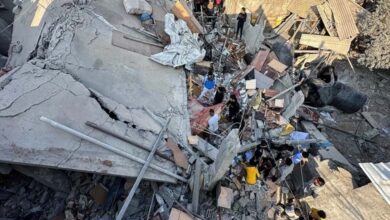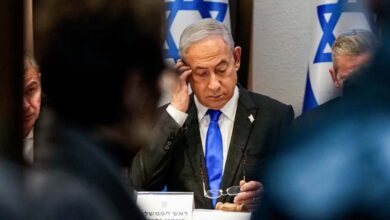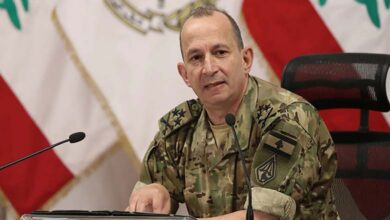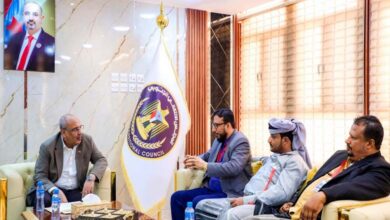Nasrallah Awaits the Right Moment to Respond to Israel
Regional and international parties are intensifying their moves to contain the escalation and prevent the spread of war in the region.
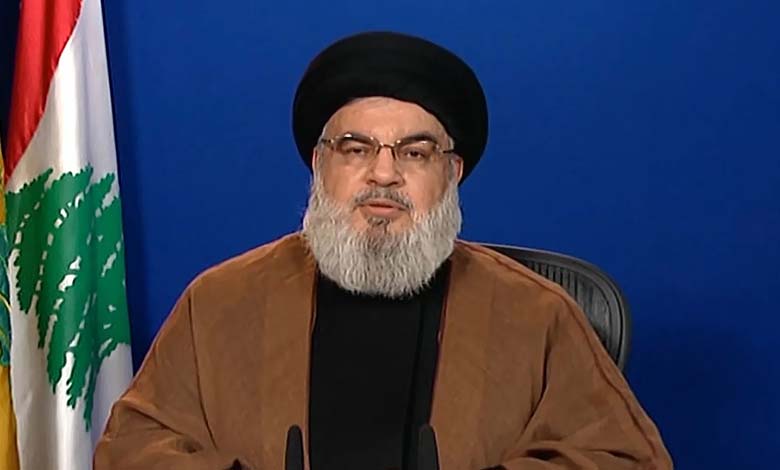
The Secretary-General of the Lebanese Hezbollah, Hassan Nasrallah, promised on Tuesday a “strong and effective” response to the killing of the group’s senior military commander, Fouad Shukr, last week. He stated that the group will act either alone or with regional allies, while regional countries continue to move to contain the impending escalation and limit its repercussions.
-
Crisis Between Defense Minister and Army Chief Amid Heightened Tensions Between Hezbollah and Israel
Nasrallah added that he would wait for the right moment to respond but did not hint at the nature or timing of this response. He said that all international attempts to dissuade Hezbollah from responding were futile.
In a televised speech a week after the assassination of Fouad Shukr in Beirut, Nasrallah said, “Our response will come, God willing, strong and effective, alone or with our allies. This is a major battle, and the blood shed is dear and precious, and this attack is serious. Whatever the circumstances, the resistance cannot overlook these Israeli attacks.”
Hezbollah members and supporters gathered to listen to Nasrallah‘s speech in the southern suburbs of Beirut. Just before the speech began, Israeli warplanes flew at low altitude over the Lebanese capital, causing loud sonic booms.
The noise from the explosions prompted residents to rush to open windows to prevent glass from shattering, or to stand on balconies to watch the planes flying overhead. Nasrallah said at the beginning of his speech that the purpose of the sonic booms was to provoke those gathered.
Concerns are growing about the possibility of the Middle East sliding into a full-scale war after Hezbollah vowed to avenge the killing of Fouad Shukr, along with Iran’s anger over the assassination of Ismail Haniyeh, head of the Hamas political bureau, in Tehran last week.
Many countries in the region are intensifying their efforts to calm tensions to prevent the conflict from spreading. The White House said U.S. President Joe Biden discussed ongoing efforts to calm tensions in the Middle East and achieve a ceasefire in the Gaza Strip, as well as release hostages, in talks with Egyptian President Abdel Fattah al-Sisi and Qatari Emir Sheikh Tamim bin Hamad Al Thani on Tuesday.
The Egyptian presidency said in a statement on Tuesday that Sisi emphasized during the call with Biden “the Egyptian vision regarding the serious repercussions of the continued war in the Gaza Strip and its negative impact on the region’s stability, given that reaching a ceasefire agreement in Gaza is the primary core for restoring calm and stability in the region.”
The statement added that Sisi and Biden also agreed to “continue joint work to achieve a ceasefire and in efforts to implement a two-state solution as the main guarantee for stability and security for all peoples of the region.”
For its part, the Qatari Emir’s office said in a statement, “During the call, the strategic relations between Qatar and the United States were discussed, as well as the latest developments in the situation in the Gaza Strip and the occupied Palestinian territories, and joint mediation efforts to end the war in the Strip.”
In parallel, Jordan’s King Abdullah II warned during phone calls with French President Emmanuel Macron, Italian Prime Minister Giorgia Meloni, and Canadian Prime Minister Justin Trudeau of the “dangers of the conflict’s expansion in the region.”
King Abdullah discussed with Macron, Meloni, and Trudeau the “international efforts to halt the escalation in the region,” according to a statement from the royal court, calling for “intensifying efforts to stop everything that threatens the security and stability of the region.”
Amid escalating concerns, the United States announced the reinforcement of its military presence in the region, deploying more warships and fighter jets to protect its troops and ally, Israel.
Additionally, King Abdullah reiterated to Macron, Meloni, and Trudeau “the importance of achieving an immediate and sustainable ceasefire in Gaza, protecting civilians, and preventing the worsening of the humanitarian catastrophe,” according to the same source.
In this context, Jordanian Foreign Minister Ayman Safadi consulted on Tuesday with his American counterpart Antony Blinken, Chinese counterpart Wang Yi, and Qatari counterpart Mohammed Al Thani.
According to a statement from the Jordanian Ministry of Foreign Affairs, Safadi and Blinken discussed during a second call within a week “the necessary measures to stop the dangerous escalation in the region.”
The raid that killed Shukr on July 30 was the second time Israel bombed the southern suburbs of Beirut during the ongoing ten-month-long fighting between Hezbollah and the Israeli army, taking place parallel to the Gaza war.
Hezbollah had earlier said it carried out attacks with drones and rockets on two military sites near Acre in northern Israel. It stated it launched “an aerial attack with a squadron of suicide drones targeting the headquarters of the Golani Brigade and the headquarters of the Egouz Unit 621 in the Shraga camp north of occupied Acre, hitting its targets accurately, causing confirmed damage.” The group also said it targeted an Israeli military vehicle at another site.
The Israeli army said it detected several enemy drones entering from Lebanon and intercepted one. Medical officials in Israel said seven people were transported to a hospital south of the coastal city of Nahariya, one in critical condition.
-
Israel and Hezbollah: Is Confrontation Inevitable?
-
Forest Fires in Israel: What is Hezbollah’s Involvement and What are the Consequences?
The Israeli army indicated that initial investigations suggest the injuries were caused by an interception missile “that missed its target and hit the ground, injuring several civilians.” It added that the incident is still under investigation.
In a statement, the Israeli army said alarm sirens had sounded in Acre, but it was a false alarm. It said the Israeli air force targeted two Hezbollah buildings in southern Lebanon.
-
Assassinated in a Night Raid on Southern Lebanon: Who is the Senior Hezbollah Military Leader Taleb Abdullah?
-
Dangerous Escalation: Hezbollah Targets Israeli Fighter Jets for the First Time Since the War Began
Medical and security sources earlier reported that four Hezbollah fighters were killed in an Israeli strike on a house in the town of Mefdoun in southern Lebanon, about 30 kilometers north of the border.



